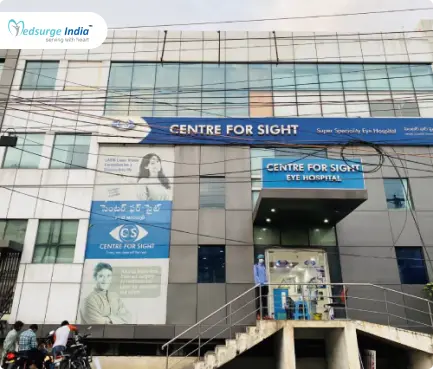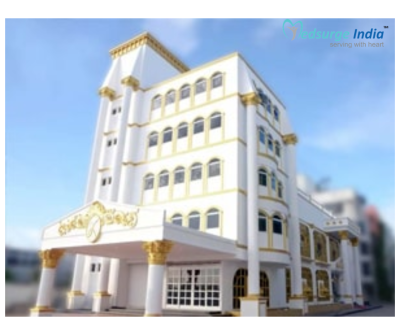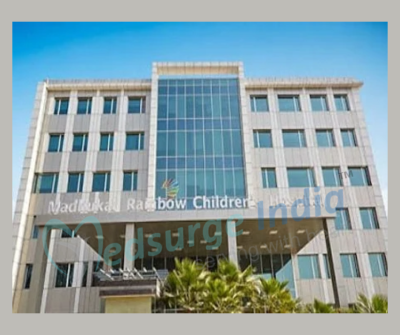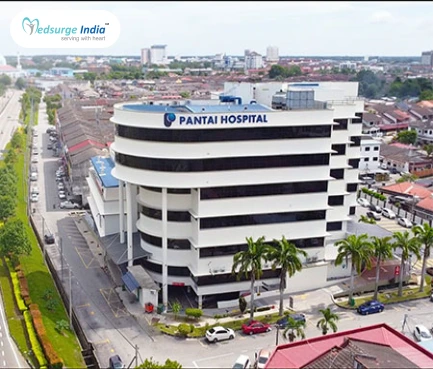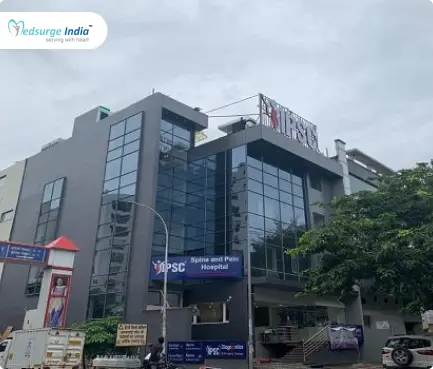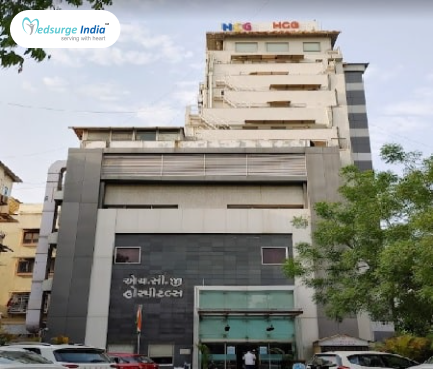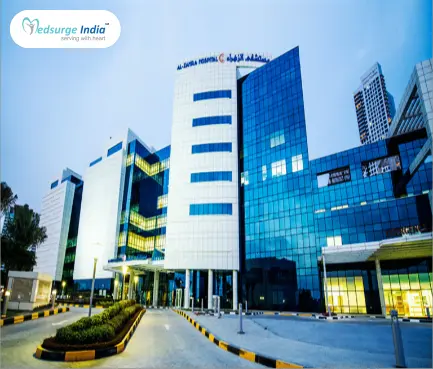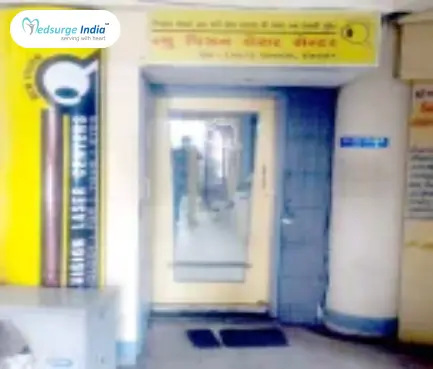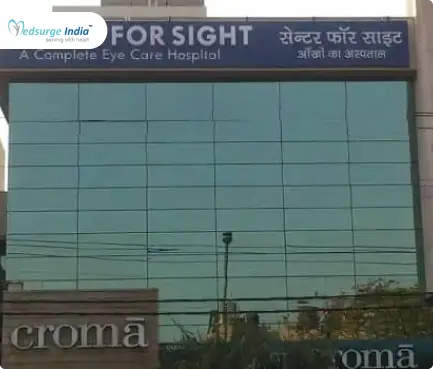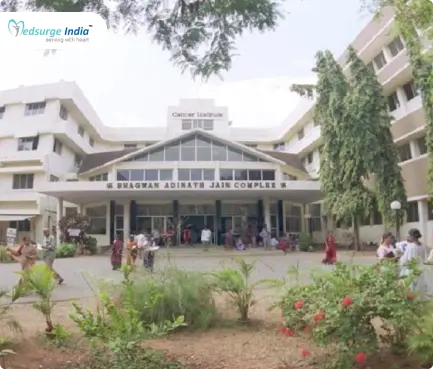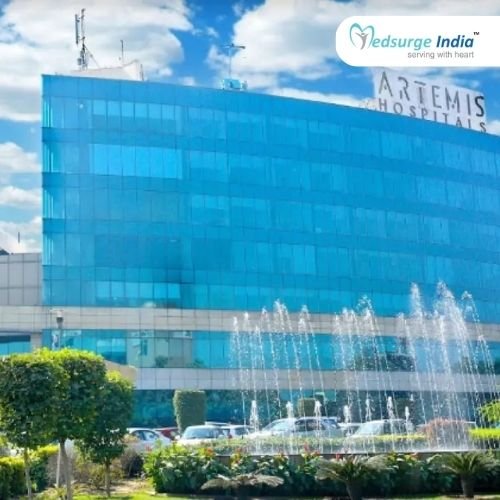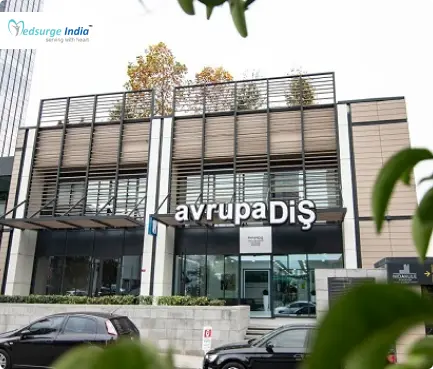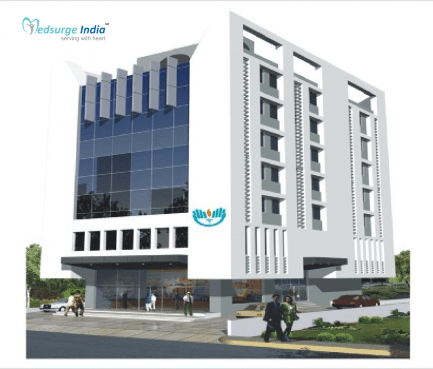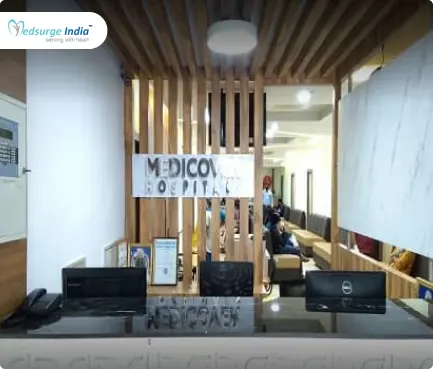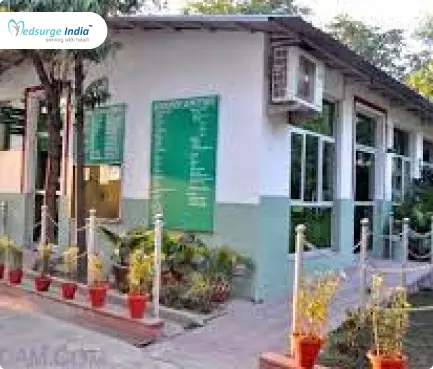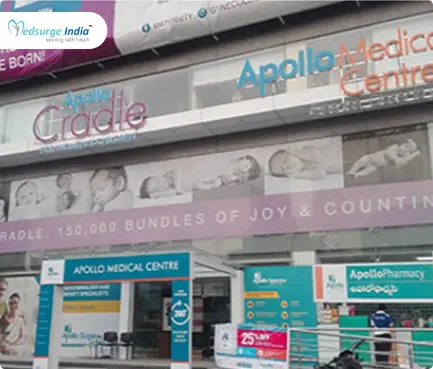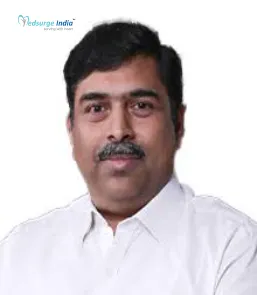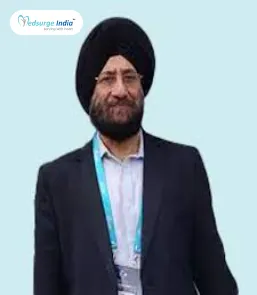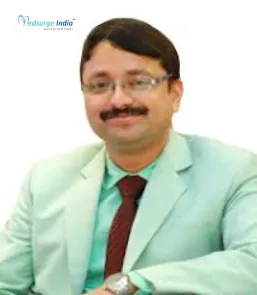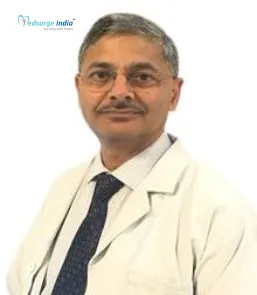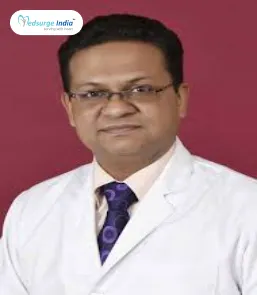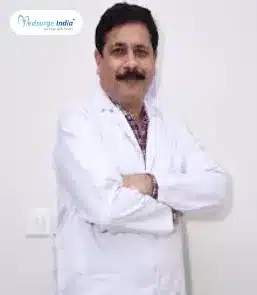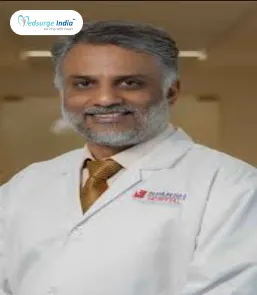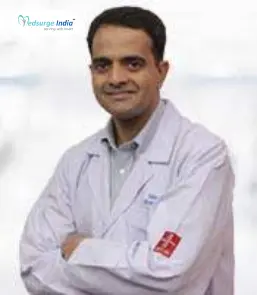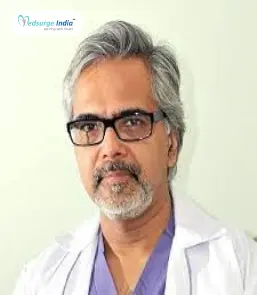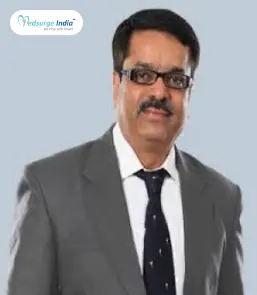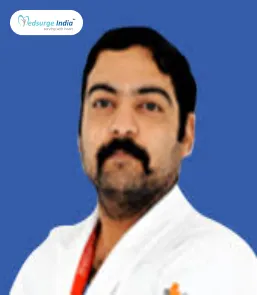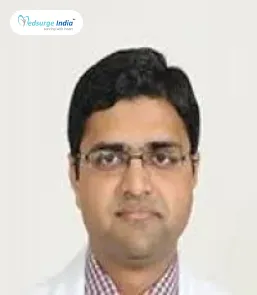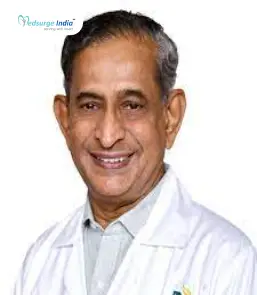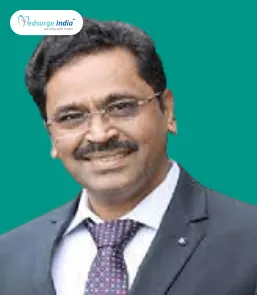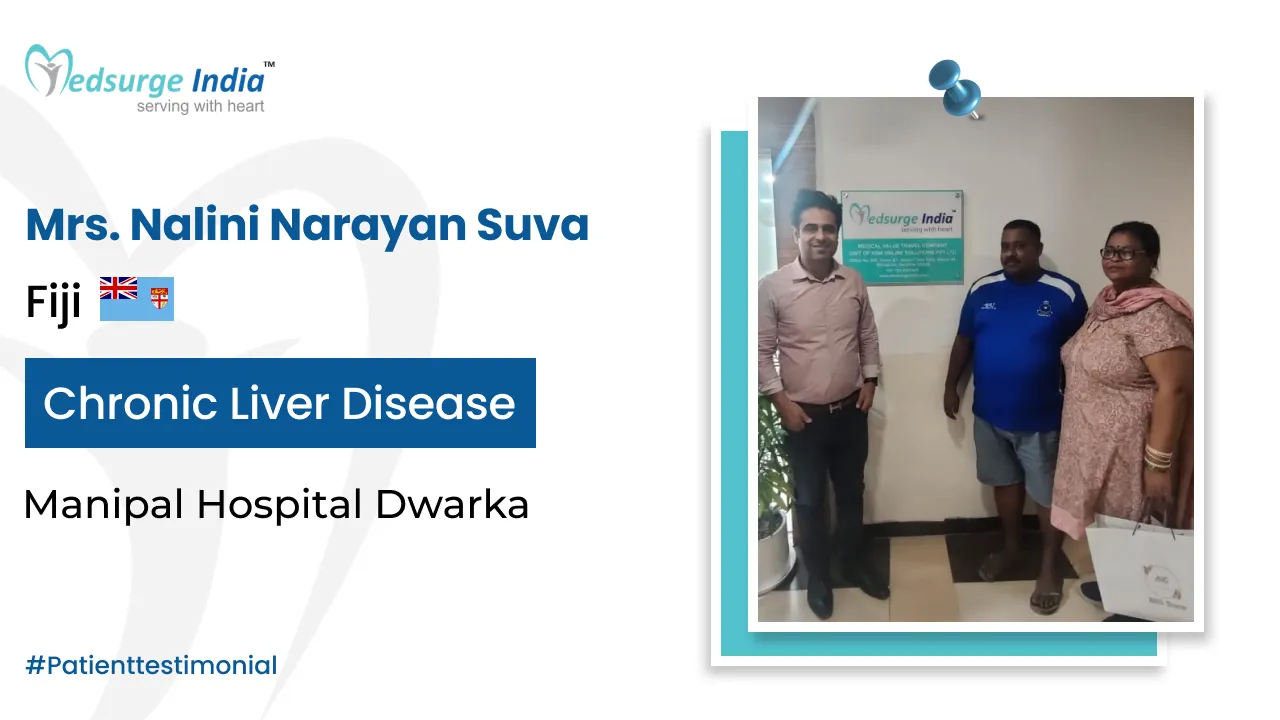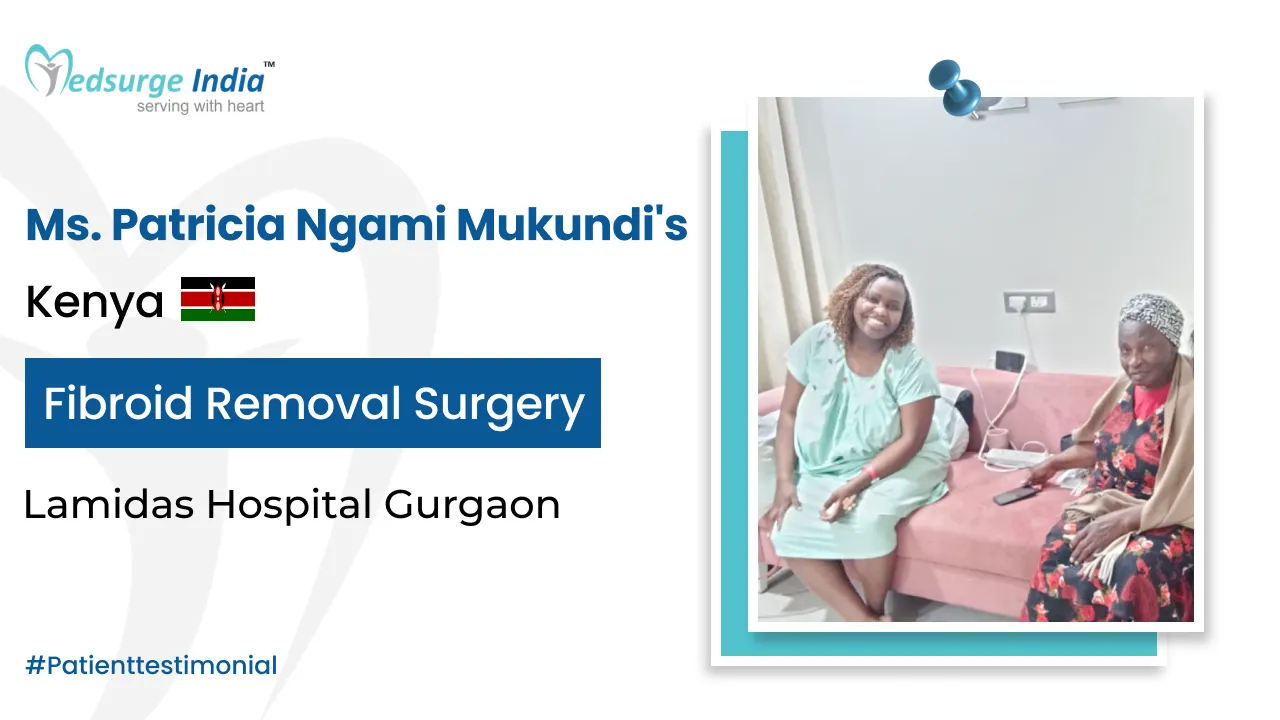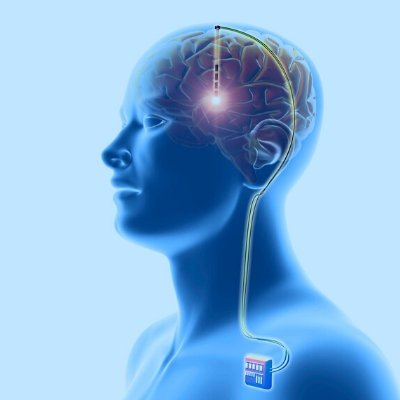
Deep brain stimulation (DBS) is a treatment that uses an implanted device to provide an electrical current to specific parts of your brain. This current boosts the efficiency of certain components. It’s most commonly used to treat Parkinson’s disease and epilepsy, but researchers are looking at whether it can assist with a variety of other ailments as well.
During deep brain stimulation in India, stimulators are implanted on both sides of the brain in patients. The electrodes are subsequently placed after the stimulators have detected the inactive areas. The electrodes are then wired to a pacemaker device that is implanted beneath the skin of the chest below the collarbone.
The cost of deep brain stimulation in India is fairly affordable, although it varies depending on the hospital facility and city. Deep brain stimulation treatment cost in India is considerably too much in the United States and the United Kingdom, substantially more than it does in India.
What Is Deep Brain Stimulation
Deep brain stimulation (DBS) is a surgical treatment that involves implanting electrodes in the brain and delivering electrical impulses to prevent or modify the abnormal activity that produces symptoms.
The deep brain stimulation system is made up of four parts:
- Leads: Thin, insulated cables that connect to electrodes in the brain.
- A pulse generator: It is a tiny device that generates electrical pulses, similar to a pacemaker.
- Extensions: Lines link to the brain leads and carry electrical pulses from the device.
- Programming device: The handheld programmer has the ability to change the device’s signals as well as turn them on and off.
Deep brain stimulation involves inserting electrodes into specific areas of the brain. Wires connect the electrodes to a pacemaker device (known as an Implantable Pulse Generator) inserted beneath the skin of the chest below the collarbone.
The pulse generator once turned on, provides constant electrical pulses to the target areas of the brain, changing the aberrant activity that is generating symptoms. The deep brain stimulation technology works in a similar fashion to a heart pacemaker. Deep brain stimulation in India is often referred to as “the brain’s pacemaker.”
What Are the Symptoms that Lead to Require for DBS
Depending on the type of sickness, patients may have a number of symptoms. Some instances are as follows:
Dystonia
- Muscle contractions that occur involuntarily while performing certain actions (e.g. writing)
- Muscle spasms are enhanced by stress, fatigue, and anxiety
Epilepsy
- Temporary confusion
- About of staring
- Consciousness loss
- Jerking movements of the arms or legs that are uncontrollable
- Frequent emotional responses like fear and anxiety
Essential Tremor
- Tremor that occurs while completing routine chores like writing or drinking
Obsessive-Compulsive Disorder
- Infection or germ phobia
- Aggressive behavior for handwashing or excessive cleaning against others or toward oneself
- Having things in symmetrical or flawless order
- Counting obsession
- Checking everything several times (e.g. oven is off, the door is locked, etc.)
Parkinson’s Disease
- Tremor
- Bradykinesia is a slowing of movement.
- Body stiffness
- Unusual walking
Why DBS Is Done
Each human brain has billions of neurons that communicate with one another via electrical and chemical impulses. Several brain diseases can cause neurons in various sections of your brain to become less active. When this happens, those areas of your brain stop working properly. You may have disturbances in the abilities regulated by the damaged section of the brain.
DBS uses an artificial electrical current to stimulate certain neurons, which can help with the symptoms of a variety of brain diseases. However, experts are still unsure of how or why this happens.
DBS is a surgical intervention used to treat patients with movement disorders such as essential tremors, Parkinson’s disease, and dystonia. It can also be used to control symptoms of obsessive-compulsive disorder and epilepsy. This procedure is utilized when medications are no longer effective for patients maintaining a good quality of life.
These diseases affect thousands of people worldwide. DBS has been used to treat over 160,000 people for various neurological conditions.
Deep Brain Stimulation Cost in India
Deep Brain Stimulation Cost in India starts from 27,500 USD. For Deep Brain Stimulation in India, the expenses are subject to variation based on the patient’s condition and the specific treatment approach chosen by the doctor following the results obtained.
Deep Brain Stimulation Cost in Various Cities in India
| Cities | Starting Cost (USD) |
| Delhi | 27,000 USD |
| Gurgaon | 26,000 USD |
| Noida | 27,500 USD |
| Mumbai | 26,000 USD |
| Hyderabad | 26,000 USD |
| Chennai | 27,000 USD |
| Kolkata | 25,000 USD |
| Bangalore | 27,000 USD |
Please note that the pricing and the treatment for Deep Brain Stimulation cost in India will vary depending on the patient’s choice and other various factors.
Factors That Can Affect Deep Brain Stimulation Cost in India
The following here are some variables that can affect Deep Brain Stimulation Cost in India:
- Medication costs.
- Duration of treatment.
- Geographical location.
- Hospitalization expenses.
- Government policies and subsidies.
- Medical tourism packages.
- Hospital reputation and infrastructure.
- The expertise and experience of medical professionals.
- The type and frequency of diagnostic procedures.
- The choice of treatment modality.
In addition, the quality and level of medical care and facilities offered are on par with renowned healthcare institutions worldwide, even after factoring in the costs of accommodation, meals, and transportation. Moreover, under the guidance of highly proficient doctors, Medsurge India ensures that patients receive the most affordable Deep Brain Stimulation Cost in India.
Diagnosis and Testing
A multidisciplinary team of clinicians, including a neurologist, neurosurgeon, neuropsychologist, and psychiatrist, may care for patients. To establish the severity of their condition, patients with Parkinson’s disease or tremors may be exposed to motor symptom testing while on and off medication. Epilepsy can be diagnosed using electroencephalography and other modern procedures. Some patients may be submitted to neuropsychological testing during the evaluation. Obsessive-compulsive disorder patients must complete the Yale-Brown Obsessive-Compulsive Scale (YBOCs).
Prior to surgery, patients must go through the following procedures:
- Blood and urine tests are performed: Help to detect toxins and anomalies.
- MRI and/or CT scans: Imaging can help doctors target the right portion of the brain for symptom management.
- Clearance: The doctor’s approval and family consent
Know More –
Top Neurosurgeons in India
- Dr. Sandeep Vaishya
- Dr. Rana Patir
- Dr. Nigel P Symss
- Dr. Raghunathan N
- Dr. K. Sridhar
- Dr. Paresh K. Doshi
- Dr. Aditya Gupta
- Dr. Bipin Walia
- Dr. Sudhir Tyagi
Watch Video – https://www.youtube.com/watch?v=-MNkClGUT54
Get Free Cost Estimation
Procedure
How Is Deep Brain Stimulation Performed
DBS surgery can be done while you are awake (with local anesthetic and minimal sedation) or while you are asleep (local anesthesia). Some patients may be awake for part of the procedure and asleep for the rest.
If the procedure is conducted while the patient is awake, local anesthesia is administered to numb the scalp, and the brain requires no anesthetic because it lacks pain receptors.
Doctors may advise the patient to discontinue taking Parkinson’s medications. During the surgery, the patient is requested to complete particular tasks in order to assist the surgeon in inserting electrodes in the correct portion of the brain.
However, some patients may find it uncomfortable to remain awake during brain surgery or to refuse medication. Because the patient would be unconscious during the surgery, general anesthesia is an alternative choice.
The following are the steps involved in Deep Brain Stimulation Surgery in India:
- Attaching the stereotactic frame
- Imaging scans – MRI or CT scan
- An incision on the skin and skull
- Insertion of the electrode in the brain
- Stimulation of the brain cells
- Closure of the incision
- Implanting the stimulator
- Programming the stimulator
What Are the Advantages and Risks Associated with Deep Brain Stimulation Surgery
DBS has a number of advantages. These are some cases:
- When medications are inadequate, they may provide a treatment option
- It has the potential to be a life-changing (or perhaps life-saving) treatment
- It is movable
- It can be reversed
Among the possible complications of surgery are:
- Sepsis and infections
- Bleeding (internal or at the site of your incisions)
- Coma
- Stroke
- Swelling within and outside of your head
Some complications may arise as a result of the leads and pulse generator. These include:
- Lead shifting or improper placement
- Lead wires are separating from the pulse generator
- The leads or the pulse generator have failed
- Soreness or pain surrounding the pulse generator
Living with Stimulator:
After the DBS has been programmed, you will be sent home with instructions for regulating your own stimulation. The handheld controller allows you to turn the stimulator on and off, pick programs, and regulate the intensity of the stimulation. The majority of patients leave their DBS system 24 hours a day, seven days a week. Some individuals with essential tremors can use it during the day and then turn it off before going to bed. If required, your doctor may adjust the settings during follow-up appointments.
You will need to utilize a charging unit if your DBS has a rechargeable battery. The average charging time per week is 1 to 2 hours. You will have the option of using a primary cell battery or a rechargeable device, which you should discuss with your physician before surgery.
Cell phones, pagers, microwaves, security doors, and anti-theft sensors, like a cardiac pacemaker, will not interfere with your stimulator. When flying, keep your Implanted Device Identification card with you because the device is identified at airport security gates.
Deep brain stimulation (DBS) is a treatment option for a variety of disorders that impair brain function and mental health. It is nearly always a possibility when other treatments and approaches have failed. It is most commonly used to treat Parkinson’s disease and epilepsy, but researchers are also investigating the prospect of utilizing it to treat a variety of other disorders. While it does require two to three procedures, it is also quite effective in reducing symptoms and treating conditions that have a negative impact on your quality of life.
Best Hospitals For Beep Brain Stimulation in India
- Indraprastha Apollo Hospital New Delhi
- Fortis Hospital Gurgaon
- Amrita Hospital, Faridabad
- Artemis Hospital Gurgaon
- Fortis Hospital Noida
- Manipal Hospital Dwarka, Delhi
- Global Hospital Mumbai
- Apollo Hospitals, Greams Road, Chennai
How to Choose a Hospital For Deep Brain Stimulation In India
Hospitals that perform Deep Brain Stimulation in India are well-known for their hospitality and patient care services providing the finest cancer hospital and neurologists and neurosurgeons in India. However, choosing a suitable hospital for treatment can be difficult for an international patient. It is a significant decision that must be made with several factors in mind, including:
- Quality certificates and accreditations
- Hospital and transportation facility location
- Team of doctors and surgeons
- Advanced diagnostic and therapeutic equipment
- International patient assistance
Why Do Individuals Prefer to Have Deep Brain Stimulation in India
Certainly, India is a popular destination for those seeking disease-related treatment and medical procedures. Deep Brain Stimulation in India is typically a fraction of the cost of a comparable procedure and consideration in the United States and other developed countries. In any case, the cost may vary depending on the type of medical procedure, the use of inserts, and the patient’s other conditions. As a result, the final charges for Deep Brain Stimulation in India given to patients are entirely based on their clinical reports, as well as the patient’s current condition, type of medical procedure, type of room, the specialist’s skill, and hospital brand.
The best hospitals for Deep Brain Stimulation in India provide comprehensive appropriate treatment, including comprehensive pre-operative evaluations, minimally invasive surgical options, and post-operative rehabilitation programs. Patients can expect personalized treatment, individualized attention, and compassionate care at these medical facilities.
How Can Medsurge India Help
Medsurge India is a prestigious support system for patients looking for doctors, hospitals, and specialized treatments. Our staff will provide you with a list of licensed, renowned, and trustworthy physicians and medical facilities in relation to your medical needs. Apart from that, we provide a cost-effective treatment plan. Also, we assist patients with obtaining travel authorizations, medical visas, and a multitude of other things.
The Most Important Frequently Asked Questions
Q: What Should I Avoid After DBS Surgery?
A: Heavy activity should be avoided for 4 to 6 weeks after surgery. This includes any physical activity such as jogging, swimming, or physical education programs. To allow your surgery wound to heal properly, avoid doing anything difficult. Before engaging in any activity, see your doctor if you have any concerns.
Q: How Long Does It Take for Deep Brain Stimulation to Work?
A: The level of stimulation is customized, and it could take up to six months to establish the right balance. Depending on your condition, stimulation may be continuous 24 hours a day, or your doctor may urge you to switch your pulse generator off at night and on again in the morning.
Q: What Can Go Wrong with DBS Surgery?
A: Movement-related adverse events such as loss of balance, marginal paralysis, jolts and shocks, and impaired coordination may occur in people who have had DBS. Following DBS surgery, it is fairly uncommon for individuals to suffer increased tremors.
Q: Is DBS Surgery Painful?
A: Although there may be some adverse effects, the operation is not particularly uncomfortable. Patients may experience various side effects in the weeks and months following a DBS treatment, depending on their medications and the initial programming. Abnormal sensations, numbness, tingling, and involuntary muscle contractions are all possible side effects.
Q: Does DBS Help with Fatigue?
A: In Parkinson’s disease, fatigue is a prevalent and disabling non-motor symptom (PD). While deep brain stimulation surgery (DBS) has been linked to a reduction in motor complaints, it has also been linked to non-motor adverse effects. No study has used standardized tools to assess fatigue after DBS surgery to date.
Top Hospitals for Deep Brain Stimulation in India
Top Doctors for Neurology And Neurosurgery
Dr. Jetinder Pal Singh
Senior Consultant
Experience: 43+ years of experience
Shri Mata Vaishno Devi Narayana Superspeciality Hospital, Katra
Katra, India
Dr. Ashis Datta
Senior Consultant
Experience: 15 years of experience
Institute of Neurosciences, Kolkata
Kolkata, India
Dr. HC Pathak VSM
Senior Consultant
Experience: 27 years of experience
Max Super Speciality Hospital Dehradun
New Delhi, India
Dr. Abhinav Gupta
Experience: 19 years of experience
Sir Ganga Ram Hospital, New Delhi
New Delhi, India
Dr. Vikram Dua
Director
Experience: 20 years of experience
Metro Hospital and Heart Institute, Faridabad
Faridabad, India
Dr. Avinash K M
Consultant
Experience: 12 years of experience
Manipal Hospital Formerly Columbia Asia Referral Hospital, Bangalore (Yeshwanthpur)
Bangalore, India
Dr. Paritosh Pandey
Consultant
Experience: 21 years of experience
Manipal Hospital (Old Airport Road) Bangalore
Bangalore, India
Dr. Harsh Jain
Senior Consultant
Experience: 26 years of experience
Medica Superspecialty Hospital
Kolkata, India
Dr. Ashok Hande
Senior Consultant
Experience: 25 years of experience
Fortis Hiranandani Hospital, Vashi
Mumbai, India
Dr. Usha Kant Misra
Head of Department
Experience: 35 years of experience
Apollo Medics Super Speciality Hospital, Lucknow
Lucknow, India
Dr. Swapnil S Patil
Consultant
Experience: 12 years of experience
Medanta – The Medicity, Gurgaon
Gurgaon, India
Dr. Anil Kumar M S
Senior Consultant
Experience: 15+ years of experience
Sahyadri Narayana Multispeciality Hospital, Harakere, Shimoga
Shimoga, India
Dr. B A Chandramouli
Principal Consultant
Experience: 37 years of experience
Apollo Speciality Hospital, Jayanagar
Bangalore, India
Dr. Brig H S Bhatoea
Senior Consultant
Experience: 45+ years of experience
Max Superspecialty Hospital, Mohali
Mohali, India
Dr. Dhiyanesh Krishnamoorthy
Consultant
Experience: 11 years of experience
Manipal hospitals Life’s On, Jayanagar
Bangalore, India

